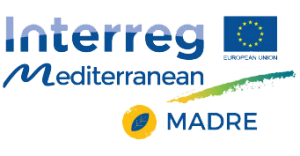04/2016
Founded in 1963, the Deaf Children Institute is the only public institute for deaf and hardof-hearing students in Albania. It has about 100 students coming from all over the country and provides preschool and 9-year education. The Institute has pioneered research, education and therapeutic efforts to improve the lives of deaf children. Its programme is developed with appropriate equipment, tools and methods to facilitate learning. Educational activities outside the classroom are crucial for the acquisition of complex skills and knowledge. So, some teachers had the idea to involve students as cultivators in the Institute garden.
Contact details
Deaf Children Institute
Function / Organisation :
, Deaf Children Institute
E-mail : institutinxnukdegjojne@yahoo.com
Website : https://www.facebook.com/institutinxenesveqenukdegjojne
E-mail : institutinxnukdegjojne@yahoo.com
Website : https://www.facebook.com/institutinxenesveqenukdegjojne
Location
Rruga e Dibrës, Në krah të Medresesë, 1001 Tirana, Albania
Albania
Albania
Stakeholders
- 3 teachers and 30 students (from 7 to 15 years old) of the Deaf Children Institute
- Ministry of Education, on which the Institute depends
Objectives
- Raising the awareness of students on farming and gardening, and empowering them to develop related activities
- Offering deaf and hard-of-hearing children an alternative therapy and a relaxing activity
- Facilitating their understanding of the links between natural systems, food production, diet and human health
- Developing a green area and producing fresh food within the Institute
Legal framework & Budget
The Deaf Children Institute is a public institution depending on the Ministry of Education. It employs around 70 academic and non-academic staff. 3 teachers are involved in the gardening initiative. The latter was initiated by school teachers with their own funds, then supported by children’s parents.Activities
Inside the Institute courtyard is a garden of around 30 square meters, which was partly planted with flowers and partly unused. Three teachers decided to cultivate this garden with their students. Thirty deaf and hard-of-hearing children from the age of 7 to 15 are benefiting from this activity twice a week. They plant flowers, take care for pigeons in a dovecote and grow some vegetables. The small quantity produced is used in the Institute canteen.>Innovation & Outcomes
This initiative brings about educational and therapeutic innovation as it experiments farming and gardening as a new therapeutic tool for deaf and hard-of-hearing children. This activity could also be beneficial for children with autism or Down syndrome. The main goal behind it is to enable children with disability to gain confidence in their skills and capacity and to join mainstream education.
SQM Cultivated
30
30
People reached
30
30







